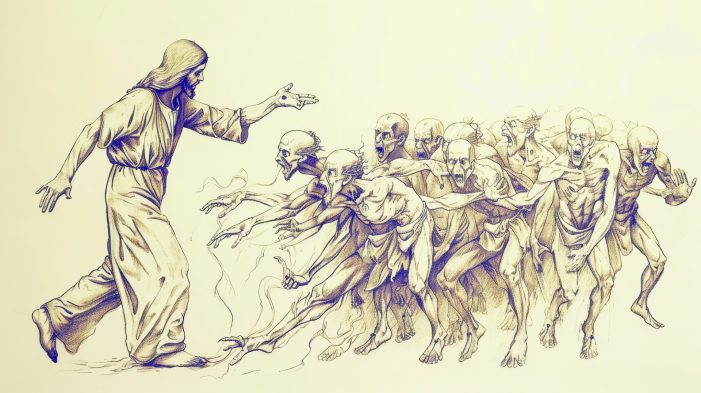Rockwall, TX (October 23, 2024) – The dark and musty garage laundry room with one small window that allowed a bit of moonlight provided a perfect atmosphere for our small group of neighborhood kids to meet. We sat in a circle as the older ones told ghost stories that made us shiver with excitement or scream with fear.
In my youth, shows like “The Twilight Zone” fed our curiosity for the world beyond. Such entertainment seems harmless now compared to the modern genre of supernatural movies and series that encourage cult-like devotion.
An adolescent fascination with the unknown can turn from dabbling to diving into a pool of old and new-age spiritual beliefs: witchcraft/wiccan, and various practices that seek to summon the spirit world. And this dark pool is more inviting than ever.
Covens and other spiritual communities are easily joined through social media, where anonymity lends even more allure. Some groups connect to nature and health; many connect obviously to feminism (members refer to themselves as goddesses). Some incorporate religious practices and symbols: relic-filled altars, incantations/prayer, the Star of David, the Christian cross (usually upside down).
Trying to tap into the supernatural is understandable in troubling times. Add family instability, social chaos, or other personal disappointments for a greater sense of powerlessness. The resulting loss of trust in authorities easily includes faith traditions, and therefore, God.
But looking to other spirits is idolatry and rebellion against our Creator (1 Samuel 15:23), a risky foray into the devil’s territory (1 Timothy 4:1). Following a false spirit can be a heady thing—learning secrets and assuming powers. But demons are real, and, like squatters, they’ll take possession.
When the Son of God came, he both recognized evil spirits and cast them out of people—left and right. In fact, there were so many people troubled by demons that Jesus commissioned his disciples to cast them out (Matthew 10:1). Like frightened vermin, the demons scattered and fled at the name of the One who “has authority to cast into hell” (Luke 12:5*).
Besides those vivid displays of Jesus’ power over Satan, we should notice his compassion for those in bondage. God understands that spiritually hungry souls may turn to false spirits not solely out of rebellion but due to a fear of trusting him: Does God really care for me? What will I have to give up if I follow him?
Faith in God begins with a humble fear of him. We are wise, for example, to respect the powers of nature—like water and fire, which can both preserve and destroy. We must likewise approach God with a holy fear that recognizes his omnipotence and omnipresence. In My Utmost for His Highest, Oswald Chambers said believers should be “absolutely haunted by the presence of God.”
Simon Peter experienced a proper fear of God after having an all-work-and-no-results night on the lake. Jesus told the skeptical fisherman to try again—launch out to deep water and lower his net. Peter was soon astounded over the net-breaking catch. In awe, he fell down at Jesus’ knees and said, “Depart from me, for I am a sinful man, O Lord” (Luke 5:8).
Jesus responded to Peter’s belief and confession with an invitation to follow him (Luke 5:10). He invites whoever will believe (John 3:16) to do the same. By faith in Christ, we receive new life and the indwelling of his Holy Spirit to guide us.
Concerning those things we might have to give up? The apostle Paul, considering Christ’s greater worth (Philippians 3:8), counted those things as “rubbish.”
*English Standard Version throughout

By Patti Richter. Patti writes and edits Christian faith articles and has co-authored Signs of His Presence: Experiencing God’s Comfort in Times of Suffering (March 2019). Read more of her essays at blueribbonnews.com/category/faith.








